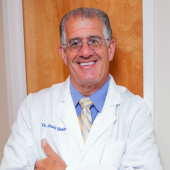As we grow older, it's normal for cuts to take longer to heal or to feel like yourself after an illness. But, don’t despair. Studies prove there is much you can do to slow down the effects of aging. Something many people do at this stage in their lives is pay more attention to their diets. A heart-healthy way of eating will indeed benefit you in terms of your weight, but there are also indications that healthy eating can have a positive effect on your brain and cognitive function.
If you have already made positive changes to your eating habits – good for you! But don’t pat yourself on the back just yet – to receive all the benefits of a healthy diet, you must also pay attention to your oral health.
Poor oral health can lead to major disease
Recent studies suggest that poor oral health may play a more significant role than what was previously thought in conditions such as heart disease, Alzheimer’s, and diabetes – all common in older adults.
And, then there’s the issue of chewing.
Inefficient chewing reduces the benefits of healthy eating
Your body can’t digest and obtain the full nutritional value of the food you eat without efficient chewing. Chewing (dentists call it masticating) is something you may take for granted, but think of it as part of digestion, and you’ll understand how important it is.
If you have missing or loose teeth, your food is not being chewed properly. Partially-masticated food can’t be properly processed by the rest of your digestive system and, therefore, you actually deprive yourself of the nutrients your healthy diet contains.
Poor chewing has been shown to contribute to digestive issues, too. Simple indigestion such as heartburn is frequent, but what’s most concerning is how poor chewing can aggravate pre-existing conditions such as diverticulosis, gastric ulcers, and IBS (irritable bowel syndrome.)
The proverbial biting off more than you can chew is one thing, but not being able to chew can be a prelude to severe health conditions.
How to ensure your teeth work for your tummy
Here are a few tips to keep your choppers healthy and your tummy happy as you enjoy this wonderful time in your life:
- Your choice of dentist – If you’re not crazy about your current dentist, now’s the time to switch. A trusting relationship with your dentist is an important factor in maintaining continual preventive dental care as you age.
- Cleanings and exams – If you your gums are healthy (no periodontal disease) and you have only minimal fillings and restorations, it’s probably sufficient to see your dentist twice a year. But, if you have gum issues or have experienced more than your fair share of dental work, you are likely at risk for further breakdown. Every three months, if you can swing it, is the best schedule for you.
- Don’t ignore the warning signs – If you sense something’s wrong, don’t wait! A small problem can become a serious one very quickly as you get older. A twinge when you eat something cold, a sharp edge on one of your molars, or a tooth that seems loose should be looked at by your dentist asap.
- Explore cosmetic dentistry – Feeling good can have a lot to do with looking good. If you have yellow, stained, crooked, or chipped teeth, ask your dentist about your options. Bonding, porcelain veneers, whitening, Invisalign and dental implants have revolutionized cosmetic dentistry and it’s not as expensive as you may think. The key is not to wait until the point of no return.
As you continue to age (gracefully) make sure your teeth continue to serve you well.
Here’s to a long and healthy life!
– This article was written by Michael Sinkin DDS, who practices cosmetic, implant, and restorative dentistry in New York City. He is known for the excellent care he provides to his patients...and for his wicked sense of humor. You can learn more about him and his practice here: https://michaelsinkindds.com/








Comments